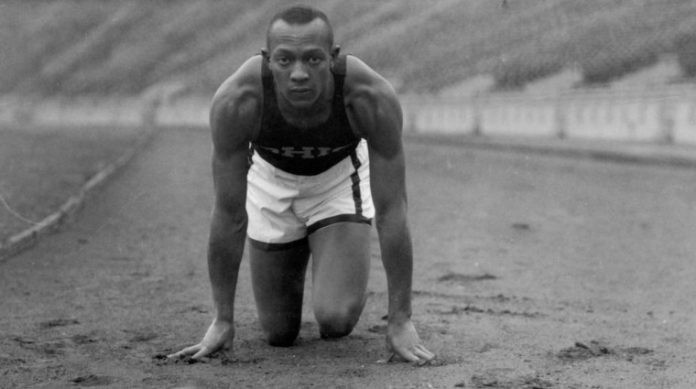

Choose the payment option that works best for you

Try it for 30 days, and if doesn't get your mojo working...let us know and receive a full refund.

― Jesse Owens
It’s been called the greatest 45 minutes in sports history.
Four world records in three-quarters of an hour.
Not 45 weeks or 45 days but 45 minutes.
On the 25th of May 1935…
21-year-old Jesse Owens averaged a world record every nine minutes at the Big Ten Championships.
In less than an hour, the Ohio State sophomore…
[3:15 pm] Tied the world record in the 100-yard dash with a time of 9.4 seconds.
[3:25 pm] Set the world record in the long jump with a leap of 8.13m
[3:34 pm] With less than 10 minutes after setting a world record that would stand for a quarter of a century, Owens lined up for the 220-yard dash.
He crushed the world record by three-tenths of a second, finishing in 20.3 seconds.
[4:00 pm] Owens arguably saved the very best until last because in 22.6 seconds he annihilated the 200m world record in the low hurdles.
But that performance was merely an appetizer for Owens.
Because exactly 85 years ago today (August 9, 1936), Owens won his 4th Gold Medal at the Berlin Olympic games.
Owens’ story is one of a high-profile sports star making a statement that transcended athletics, spilling over into the world of global politics.
Berlin, on the verge of World War II, was bristling with Nazism, red-and-black swastikas flying everywhere.
Brown-shirted Storm Troopers goose-stepped while Adolf Hitler postured, harangued, threatened.
A montage of evil was played over the chillingly familiar Nazi anthem: “Deutschland Uber Alles.”
This was the background for the 1936 Olympics.
When Owens finished competing, the African-American son of a sharecropper and the grandson of slaves had single-handedly crushed Hitler’s myth of Aryan supremacy.
He gave four virtuoso performances, winning gold medals in the 100- and 200- meter dashes, the long jump and on America’s 4×100 relay team.
Score it: Owens 4, Hitler 0.
A remarkably even-keeled and magnanimous human being, Owens never rubbed it in.
Just as sure as he knew fascism was evil, he also knew his country had a ways to go too in improving life for African-Americans.

Owens wasn’t complaining. That wasn’t his style.
He believed it was his job “to try to make things better.”
Owens died of lung cancer at age 66 on March 31, 1980 in Tucson, Arizona.
In 1984, a street near the Olympic Stadium in Berlin was renamed Jesse-Owens-Allee (Avenue) in his honor.
A decade after his death, President Ford posthumously awarded Owens the Congressional Medal of Freedom.
Bush called his victories in Berlin “an unrivaled athletic triumph, but more than that, a triumph for all humanity.”
Owens was a class act who spent the better art of his life…”trying to make things better.”
A wonderful legacy and a worthy challenge for all of us to consider during these challenging times.
I’ll leave you with this thought…
The ultimate test of the impact of your life is twofold…


Whether the world you leave behind is qualitatively different from that which you inherited.
And what specific contribution you made to that change.
Let’s all do something virtuous with the limited time we have.
A good place to start is by asking ourselves…
How can I make things better?

Oh, one more thing.
To add to his incredible list of accomplishments…
Owens returned to Ohio State for his Junior year and competed in 42 contests.
He won them all!

The 100 Day Challenge is a rapid execution system used by more than 675,000 high-achievers to achieve life-changing results in 100 days. Don’t do it unless you want spectacular results.
The strategies you’ll learn in the 100 Day Challenge have elected a president, grown non-profit causes, won gold medals and fueled movements. Now it’s your turn to win bigger faster!